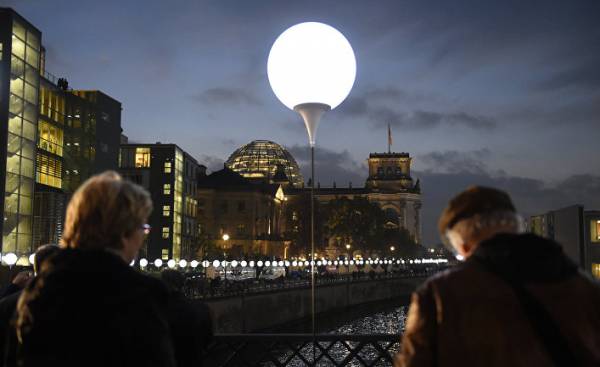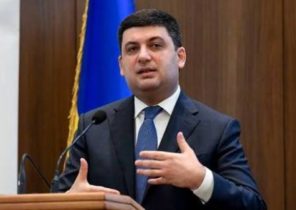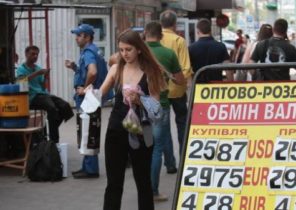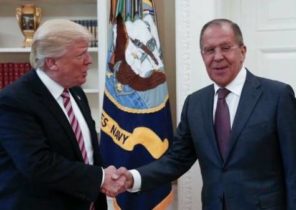
“Erdbeere” is the word for “strawberry”. In Berlin this is the name of a night club. Klubnika — an oasis in the desert monotony of everyday life. The club is located on the border of the district of Lichtenberg, where the luxury ends and Friedrichshain begins the endless jungle of multi-storey houses, extending to the East to Marzahn. In this jungle inhabited by 36 thousand of Germans originally from the former Soviet Union, the so-called Russian Germans. There is a Russian school, Russian supermarkets, Russian Church and Klubnika.
The walls in the club decorated with plastic diamonds, sparkling in the pink light. Girls on the dance floor scream into the microphone Russian song of love that listened to their parents. Songs, long forgotten on the dusty magazines in Russian cellars, “musical bodies”, you might say.
Women rocking heels to the beat of an electronic metronome. Pot-bellied men sit on white sofas in faux leather and timidly looked at too long legs ladies fail to demonstrate because they put too synthetic short evening dresses. Men is important to avoid the lustful look. “Pretty,” says one of the visitors, not like in other Berlin clubs. “Here you are outside of Western degradation”.
Shrouded in the Russian spirit
“Want one?” — ask strangers the new guest of the club in Russian with a German accent and handed him a glass of vodka and pickles. Klubnika together to glorify the image of the Russia that most 20-30 year old visitors hardly managed to experience in the age of reason, because they moved to Germany as children. They are the descendants of Germans who emigrated to Russia in the 18th century, mainly in the hope of escaping from economic hardship, which at that time had Germany. Then in the 90s, their parents moved back to Germany in the framework of displaced persons and repatriates and received German citizenship.
Marina is one of them. She stands aside and looks around the room, flapping heavily recoloured eyelashes. Here, shrouded in the Russian spirit, it feels like home, says Marina, he sighs and runs a hand through painted in blinding blonde hair. This is the feeling, which is so lacking outside those glittering walls, 30-year old native of the Urals, moved with his parents to Germany at the age of 12 years.
Marina speaks German and works well with the Germans. She claims to have adapted. However, to truly “own” it myself here doesn’t feel. Russian culture differs from the German, she says. So here she only Russian-speaking friends. In the background the girls singing “the White rose” — Russian hit of the 80s.
In a recent stay in Germany was truly unpleasant, — says Marina. The facts reported by the German and Russian media, increasingly diverge. In free from work and from visiting Klubnika time, Marina looks German and Russian television. And it often knocks her for a loop. If you believe the German media, in Germany, all more or less in order. Another Marina learned that Russia violates human rights in Syria and Ukraine.
The Apocalypse in Europe
On Russian television the world looks different. Talk here about the European Apocalypse. The residents of Munich in recent months built a wall from refugees, in Europe almost every week to identify terrorist cells. Islamist militants announced that they will seek refuge in Europe. The Germans acquire more weapons for self-protection. The European Parliament was threatening Russia with creation of a common European army, and the Americans have made cyber attacks on Russia.
The voices of girls on the dance floor sound all shrill. At least you can come here and be among their own, — says one girl to another. During losses, they greedily swallow air. Like suffocate, if deeply inhaled. It gets a little tiring. Maybe because Klubnika a lot of it is, it is about identity and about home.
Russian view of the world is deliberately of a different nature
Walter Hawks (Walter Gauks), Chairman of the Federal youth organization of Association of Russian Germans in Germany, the largest Association for the protection of the interests of this group of German citizens, contends that Russia views these people as an opportunity to promote their own interests through information policy. “They have many facets of identity, so some are more than willing to accept the Russian position,” he says. The sense of lack of national identity is a theme in the life of Russian Germans. And then they sigh that is neither Russian, nor German. In Russia it, as the Germans were reprehensible. Here they are — Russian, “chuzhie”.
Earlier in the Soviet Union, the Russian Germans were isolated because of their ethnicity. In Russia, they were accused of collaboration with Nazi Germany, Stalin deported them to Siberia. Later in Germany it was initially received with some distrust, and then urged integration.
Over the last ten years instead of mistrust it’s indifference. It was believed that the Russian Germans are well accustomed to society, they spoke German and worked. So, they become so unattractive that there isn’t even a clear data on how many Russian Germans living in Germany. Say, from 2.5 to 4 million people.
Dream to find your home
Russian Germans dream of recognition and finding a new homeland, says Henry Tsertik (Heinrich Zertik), the first Deputy of the Bundestag of the Russian Germans. This desire for the acquisition of their own “home” for a natural person. It is, of course, here in Berlin might also be the formation of people have ridiculous reasons, especially in combination with the influence of the Russian media. Says Marina: Russia in Syria and Ukraine, allegedly fighting for the good of the people. About this was reported on the main Russian state TV channels NTV and the First channel, and at the international English-language channel Russia Today.
The Russian view of the world, which is here presented, is deliberately different from the view German. In 2004, the Kremlin initiated the implementation of a strategy to “improve the image of Russia” within the country and abroad. The campaign was founded by the Russia Today TV channel, leading clock broadcasting in English, German and many other languages. Initially a creation of Russia Today was intended to show the world that Russia is better than it is portrayed by CNN, BBC, and Deutsche Welle.
After the war in Georgia in 2008, which the Kremlin touted as a “humanitarian intervention”, not wars of conquest, as it is said in the West, Russian state media began a large-scale interpretation of the world events in line with the Russian position. Increased the number of platforms that disseminate these views on the Internet, some experts call this the media strategy of propaganda. And as long as in 2014, it was annexed Crimea, and against the background of growing confrontation between Russia and the European Union information to be communicated to the Russian media, more and more contrary to that set out by the European information sources: hypocritical, exhausted from the rotten West, letting the terrorists into their territory, and attack Russia. Virtuous, faithful to its values Russia resists this degradation.
Marina these contradictory picture of the world baffled and even frightened. She asked herself: Germans hide a threat? How would she know who to trust?
They need to captivate the audience
News of the Russian TV channels NTV and the First channel create the impression of independent news, reviews of experts and analysts. They quote sources, they all seem so serious as in the Western media — says Marina.
Russia Today, in addition, compared with the dreary European news, and even more interesting. Long-haired woman with a modest flaunt makeup Studio in tight-fitting jackets and confidently waving his records, rush apt phrases, talking about world events. They say business tone, but full of passion voices sound convincing. They need to captivate the audience, and they succeed: in Russia Today millions of TV viewers.
Marina believes that there really is an information war, and in this war Russia is trying to fight against the misinformation disseminated by the West, so there is the truth is on the side of the Russian government.
Russia as an alternative
Marina has long decided for themselves who to believe. Like many other Russian Germans: according to a survey, most of them rather trust the Russian media, rather than German.
“We’re all here against refugees, in General, all my friends are Russian — Germans,” says 19-year-old Nina, her girlfriend nod. 18-year-old Alex says: “Putin is a guy, not like those limp German policy! Someday, when I have enough money I’ll move to Russia.” Alexey was born in Germany. He barely speaks Russian.
Before we go, Marina said she is now a patriot — however, her husband and son, too. According to her, in an extreme case, if in Germany the situation of refugees and hatred of the Russian becomes unbearable, she can move to Russia. But she said Marina, not really Russian. Whether she’s happy?






